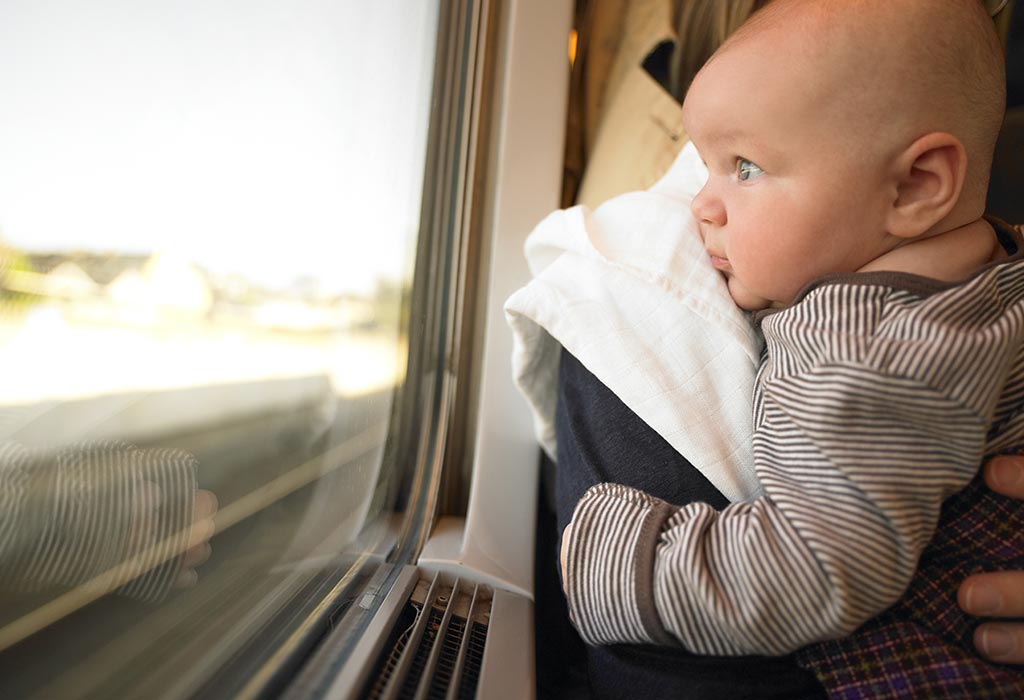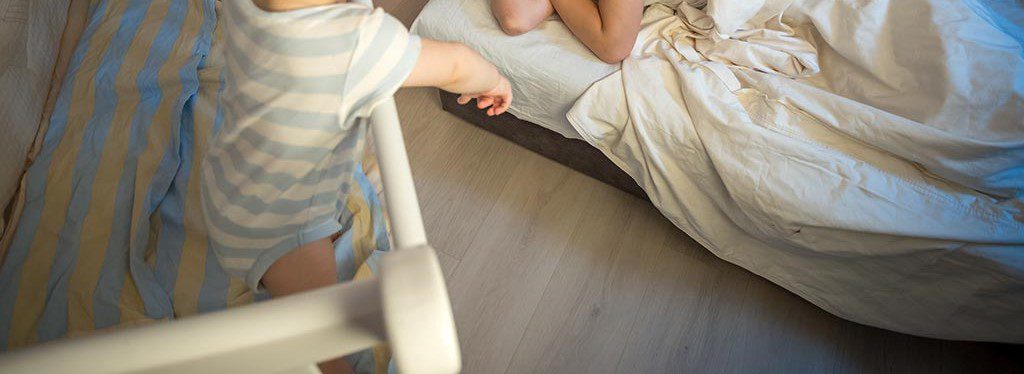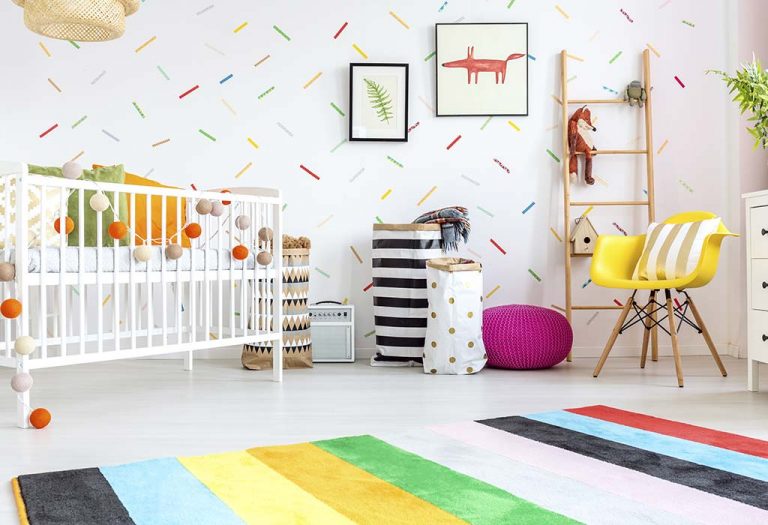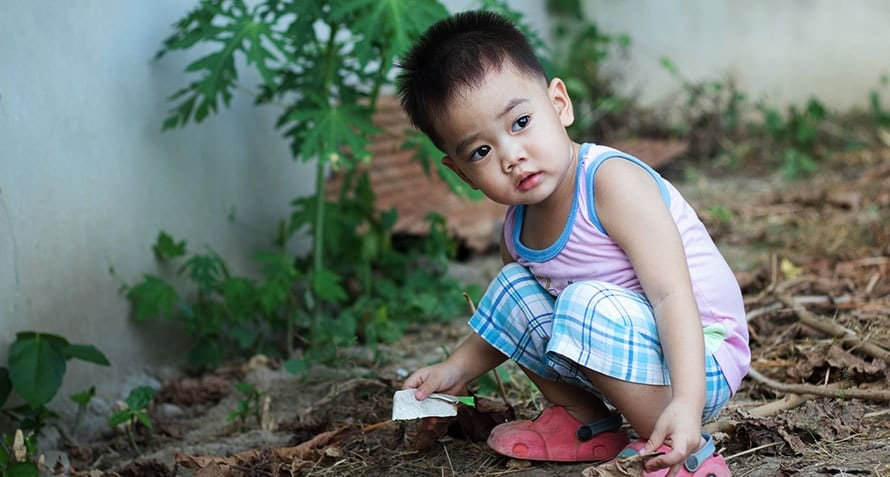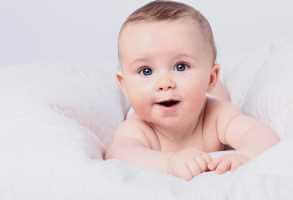Baby crying during sleep? Is it normal? Should you wake your baby or not? It's something many new parents struggle with, but how do you deal with baby crying during sleep? It's helpful to know how newborn sleep patterns work. Figuring this out can help you decide how to soothe your baby when they're screaming and crying but won't wake up.
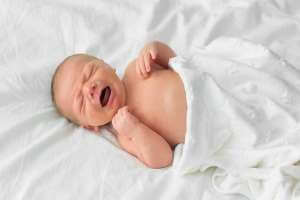
The most common reasons why babies cry during sleep
Either due to a toothache (over 6 months old) or a dream, doctors usually advise parents to check and make sure the child is comfortable. Otherwise, they should be woken up.
You will notice that your baby sleeps most of the day and night, waking up every few hours to eat. To you, as a new parent, it may seem like he doesn't sleep at all. You seem to be constantly responding to his demands.
Babies do not follow a set sleep schedule. Every baby is different and will have their own sleeping and feeding routine. Often, newborns sleep for longer periods during the day but wake up to feed frequently at night. This can be very stressful for parents.
Do you need: Newborn babies not crying, is there a danger to the child?
Parents should do everything possible to keep their baby awake after 4 p.m. until bedtime (usually 8–9 p.m.). This could be through playing music, tummy time, or other social interaction. After a few days of this technique, babies typically begin sleeping for longer periods at night, followed by frequent feedings during the day. Most babies don't sleep for more than a few hours (usually four) at night until they're close to three months old.
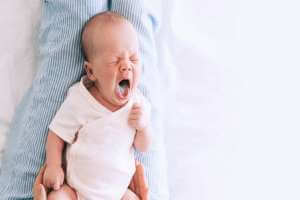
For some unlucky parents, their baby may not establish a regular sleep pattern until they are over a year old. Small tummies can't hold much food and babies get hungry. Once you establish a regular sleep pattern and change your baby's diet, they can start sleeping six to eight hours a night.
So your baby has been fed, his diaper is clean, but he still starts crying in his sleep. He may also seem like he's fighting an invisible enemy.
Do you need: Sore throat in children, causes, symptoms, prevention and treatment?
Let's take a look at the stages of sleep that a baby goes through, to shed light on why a baby cries during sleep:
1. Peaceful sleep
During this time, your baby's eyelids will be closed and you will see little or no movement of his eyes behind them. He will breathe normally and lie still. You may hear the occasional gentle sigh, indicating that he is content in his little world.
2. Active sleep
This is when you may see rapid eye movements behind your baby's eyelids. He may cry, and his arms and legs may twitch. In the blink of an eye, the crying may stop, and your baby may frown, smile, or make other facial expressions. Other things that happen during this stage are sucking noises and gentle snoring. Your baby's breathing may seem irregular.
3. Transitional sleep
There is a transitional sleep period between quiet and active sleep, and likewise between quiet and active sleep. Their eyes may open and close, and they may cry or fall asleep.
4. Waking periods
Between these different stages, there are times when your baby may be awake but will fall back asleep without help. He or she may cry during this stage as well, even when nothing is wrong.
Do you need: How to make your baby sleep through the night?
Why do babies cry while sleeping?
Babies establish their sleep patterns in the womb. By the time they're born, you may already have an idea of when they'll be awake. You may have sensed the times of day or night when they move around the most. Once they enter the world, it may take a few months for them to establish their sleep patterns.

There are some reasons why your baby might feel anxious, which may lead to the baby crying during sleep:
1. Immature nervous system
Your baby's nervous system is still developing, and it can be difficult to control their reflexes and movements. This can result in kicking, twitching, and thrashing when they're asleep. They may also cry for no reason.
2. Sleep patterns and cycles
We've covered sleep patterns and cycles in some detail above, and these are often the main reasons why your little one appears to be fighting in their sleep. Babies will regularly transform from little angels to Tasmanian devils as they sleep. They will squirm, thrash, scream, and cry as they go through the different stages of sleep.
3. Long daytime naps
Taking long naps during the day can have a negative impact on your baby's sleep quality at night. They may not settle easily and have difficulty falling into deep sleep. This can lead to kicking and crying.
Although it may feel good for you to bounce during a daytime nap, remember that this may keep you awake more at night.
4. Lack of sleep
Too little sleep can be very bad for your baby. Your baby will become irritable and tired, which can cause them to have difficulty falling asleep. An irritable baby will have difficulty settling into a quiet bedtime. They may be pessimistic and cry in their sleep.
Do you need: What you should know about constipation in infants?
Can I do anything to prevent sleep disturbances in infants?
Now that you know some of the reasons why your child might be restless at night, you may wonder if there's anything you can do.
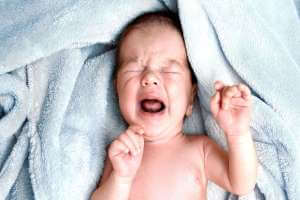
Here are some things that may help reduce your baby's crying during sleep:
1. Bedtime routine
Following the same routine every night can teach your baby to recognize the difference between day and night, and help him establish sleep patterns that are more similar to yours. Feeding your baby and giving him a warm bath can soothe him to sleep.
Do you need: Goodbye to infant colic and goodbye to a good night's sleep?
2. Swaddle your baby
Swaddling your baby so they're warm before placing them in the crib can give them a sense of security. If swaddling isn't your thing (you've never mastered it), try using a baby sleep sack.
3. Music
Playing some lullabies or soothing music, or even singing to your baby, can help them sleep better.
A baby is likely to be active and unsettled at night if they are uncomfortable. It's their way of letting you know that something isn't quite right.
They may not wake up while doing this and may cry in their sleep. It may be too hot or too cold. Their clothes may irritate them. You'll generally recognize the cries that indicate they're hungry, thirsty, or need a clean diaper.
Do you need: Is crying good for your baby?
What should I do when my baby cries while sleeping?
It's normal to hear your baby crying as they wake you up for a soothing cuddle. However, when they're crying and still asleep, waiting and watching can be the best option. They may simply be fussing as they move through the stages of deep and light sleep, not actually being ready to wake up.
They'll likely stop crying and fall back into a deep sleep within a few minutes. If they need a diaper change, are hungry or thirsty, or something else is wrong, they'll likely continue crying, waking themselves up.
the source : My Baby Is Crying In Their Sleep — What Should I Do?
